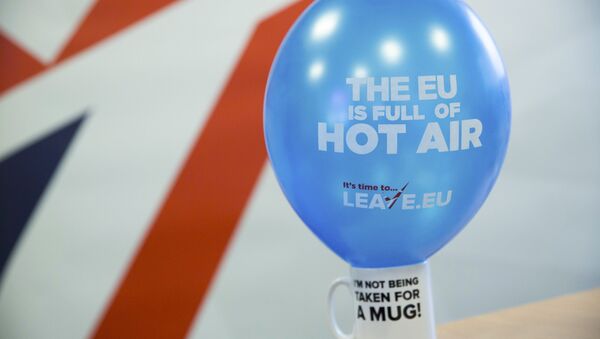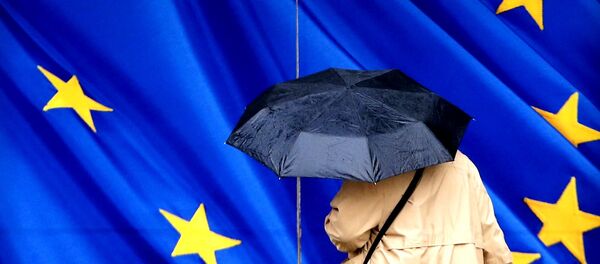While online polls seem to suggest that the race is so close that the "out" camp could eventually prevail, all phone polls point in the direction of a clear, if not overwhelming, victory of those who want the UK to stay in the EU.
"Remain" continues significant lead over "Leave" in #EUref poll for @DailyMailUK pic.twitter.com/bqZjGIyvvX
— ComRes (@ComResPolls) January 29, 2016
The muddle is particularly distressing for British pollsters, still reeling from the forecasting fiasco of the 2015 general election, which witnessed a resounding win for the Conservative party — something the entire polling industry had not seen coming.
Another blunder would be catastrophic for the sector, and the visible divergence in predictions is already raising doubts about current polling methods.
"I don't think the polling industry can afford to get this one wrong and I think the world will be looking at our performance," Martin Boon, director of pollsters ICM, told Reuters.
Phone polls carried out by ComRes and Ipsos MORI over the last few months have reliably shown that UK voters were in favor of remaining in the EU by more than 10 percent — with some showing a 20 percent lead.
On the other hand, online polls conducted by YouGov, ICM and others seem to suggest that the situation is still gridlocked in a tie between the "in" and "out" camps. A YouGov poll released on February 4 actually gave a 9 percent lead to Brexit supporters.
Boost for Leave campaign after EU deal coverage – Leave 45%, Remain 36% https://t.co/P0Q6odyCH1 pic.twitter.com/F2EHTsvhBH
— YouGov (@YouGov) February 4, 2016
Admittedly, both methods have shortcomings. Voluntary, web-based polls tend to attract only younger and more politically committed voters. This could skew the survey as some experts believe "out" backers are generally more active online.
Phone polls tend to be more inclusive of older and less tech-savvy voters, but they are dogged by low response rates, since many people aren't too happy about answering unsolicited phone calls and disclosing their political opinions to a stranger.
According to Reuters, when ICM carried out a phone poll for the 2015 general election, it needed to call 28,000 people to get just 2,000 interviews.
"My personal inclination is that the telephone polls are probably a bit too far one way and the online polls are a bit too far the other way, which magnifies the separation between the two," ICM's Boon told Reuters.
One way to make sense of all this chaos could be a "poll of polls" wgich electoral behavior expert John Curtice periodically updates on his website.
Using a method made famous by data work and journalist Nate Silver, Curtice combines six of the latest phone and web polls, in order to provide a more balanced picture. Curtice's latest "poll of polls" showed a 51 to 49 lead for the "in" camp.
NEW: Poll for @stvnews Scots split on scrapping nuclear weapons — more favour keeping if given 'unilateral' option pic.twitter.com/yHBDQOtap4
— Mark Diffley (@markdiffley1) February 9, 2016
Beyond methodological debates, much of the uncertainty could be simply down to the many questions that remain unanswered about the Brexit referendum — such as the ultimate terms of the deal David Cameron is planning to cut with the EU and the position of major political figures like London's mayor Boris Johnson, as well as the very date when the referendum will take place.





